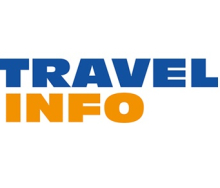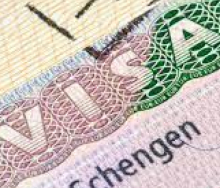AS IATA prepares to
introduce Level 4
certification of the
New Distribution Capability
(NDC) standard in March,
industry stakeholders need
to engage with one another
across all parts of the
sector.
This is irrespective of
whether they want to
build or upgrade their own
NDC-enabled solution or
connect to a travel platform
like a GDS to access
NDC content through a
single workflow alongside
traditional content.
Level 4 introduces a
new element around the
servicing and adds the
Order Change Notifications,
explains David Gomes,
Travelport’s head of Middle
East and Africa, Air – Travel
Partners.
“The new certifications
will be introduced on
March 1 and we’re already
working to ensure we
achieve these certificates
as soon as possible after
they’re released.”
David says after months
of consultation and
development, Travelport
has successfully handled
its first orders using NDC.
“Over the next few weeks,
we’re due to expand the
number of agencies and
airlines using the NDC
capability as part of
Travelport’s NDC roll-out.”
Right now, though, the
most important thing
for everyone, regardless
of where they sit in
the industry, is that
they’re open to having
conversations, says David.
The entire travel
industry needs to work
collaboratively for NDC to
truly take off, agrees Andy
Hedley, md of Amadeus
Southern Africa.
“By working closely
together, the industry
can unlock new value for
travellers and, in so doing,
generate more business for
all,” he says.
Perfectly timed then is
the Innovation Summit
to be hosted by Asata in
Bryanston, Johannesburg,
on March 14.
Here delegates will
debate issues around the
NDC and the way forward,
among other topics.
Says Asata ceo, Otto de
Vries: “Leveraging NDC to
meet changing consumer
demands and adopting
new payment innovations
on offer are important
elements of the evolution
of retail travel in the
foreseeable future.”
The industry is at the
beginning of this new
evolution, adds David.
“As we work toward
Iata’s vision that the 21
Leaderboard airlines will
transact 20% of their
third-party content via an
NDC API by December
2020, this demonstrates a
moving market. Our focus
is to ensure that Iata is
successful in delivering this
vision.
“Agents also need to
determine how the NDC
can benefit their customers
and what additional value
they can bring to airlines
once NDC is more fully
deployed,” says David.
All this information, he
says, will help agents
form an NDC strategy that
works for their business
and ensures their business
works in the broader
sector.
NDC connectivity must be affordable – agents
THE NDC, says Marco
Ciocchetti, ceo of XL
Travel, is a sophisticated
way to enable airlines
to sell their products
and services through
intermediary agents,
either by them connecting
directly through their
own developed systems
or through traditional
GDSs, which require the
necessary certifications.
These certifications
are important for any
developers of platforms
or solutions to link
customers/TMCs and
airlines (and therefore also
the GDSs), but they are
not critical to TMCs making
use of a particular solution,
explains Monique Diez,
owner of MD Dynamics.
Marco explains that
for agencies wanting to
develop their own solution
or platform, the main
benefit of the NDC is
control. “It allows you to
negotiate with individual
airlines as and when you
are ready to go live.”
The challenge, though,
is that development costs
are high. “With over 100
airlines considering NDC, it
would become prohibitive
to connect to each airline.
The industry now needs
the GDSs to provide
connectivity to make it
affordable,” says Marco.
Jim Weighell, director of
Simpliflyer, a reseller and
support service provider,
agrees that the key
downside to development
of dashboards and
so-called ‘own booking
platforms’ lies in the IT
development expense
incurred in the long term
by non-IT businesses,
allied with limited real
advantages. “Local,
custom IT development
is a costly long-term
commitment that is more
often than not overtaken by
a rapidly advancing global
technology.”
The bottom line is that
the subject still requires
a lot of industry training,
believes Amadeus’s Andy
Hedley. “We’re doing our
best to educate travel
agents and we’re driving
the industrialisation of
NDC with a dedicated
programme to ensure
success for all players.”
Andy says the travel trade
should rather focus
on streamlining processes
and partnering with tech
companies to help them
develop their unique niche,
as well as the ability to
sell more personalised
customer experiences,
faster.
Monique agrees: “TMCs
and travellers will only
benefit from NDC as they
are given access to rich
airline content that can be
personalised and secured.”
Melissa Nortje,
executive head: Strategy,
Development & Marketing
at First Car Rental/SIXT
Rent a Car, is optimistic
about the NDC and what
it means. “I believe it’s
a wake-up call for GDSs
in acceptable technology
standards, as it will force
them to revisit archaic
back-end systems in
terms of management of
availability or inventory
as well as the data they
pass on to suppliers. The
information is inferior in
structure and limited in
capability.”
During its roll-out
process, Travelport is
taking the time to get
feedback from agents while
it progresses to make
modifications and changes
as they occur, says
Travelport’s David Gomes.
“We’re replacing
decades of technology.
It’s important to manage
this process with rigour, so
we’re building a solution
that will work for everyone
and will work for years to
come.”
GetThere data goes to Jim Weighell private cloud
A MAJOR development in
the pipeline for GetThere –
Sabre’s end-to-end corporate
travel booking and reporting
solution – is a move from
fixed data storage locations
to private cloud, says Jim
Weighell of Simpliflyer.
“The move is scheduled
for around mid-2019 and will
offer faster, more secure and
state-of-the-art data storage.
Data will be stored in
multiple landing zones in the
US, Europe and Asia Pacific.”
He says data storage and
security are increasingly
important governance
issues for South African
corporations and the systemwide upgrade will meet these
requirements.
The move is part of a
Sabre-wide initiative to
modernise systems and
hardware.
NDC brings challenges to T&E reconciliation
FROM a corporate travel
perspective, it will be critical
in future to include NDCsourced booking data in
data feed to back-office
and corporate expense
management tools, believes
Simpliflyer’s Jim Weighell.
“NDC in itself is a new
fragmentation of travel
product supply channels
and, as such, it introduces
new challenges to the
reconciliation of corporate
travel and expenses (T&E).”
He believes an increased
level of choice in terms of
product information will likely
be of more benefit to leisure
travel than corporate travel
policy.
The tools and capability
offered by Sabre’s GetThere
– an end-to-end corporate
travel booking and reporting
solution – and GDS
platforms, will manage the
multi-channel consolidation
and reconciliation
requirements, says Jim.
“GetThere’s direct data
integration capability adds
the further benefit of custom
interfaces with ERP and
other internal systems for
corporates requiring this.”
GetThere is in itself
a component of a
comprehensive solution for
TMCs and corporate clients
who require an integrated
process from booking,
approval, traveller experience,
duty of care and financial
control. GetThere will be
introducing NDC content
alongside GDS inventory.
Simpliflyer also promotes
complimentary systems
including TripCase, SafePoint
(traveller tracking and
incident alerting), Smart
Agent (agency app offering
automated reprice, waitlist
confirmation and schedule
change data), Data DNA
Management Information
(previously Gottmi) and
Chrome River Expense
management.
“All these tools are proven
and supported locally. They
undergo continuous global
development, with new
capability available almost
every month, offering high
levels of process automation
along with complete mobility
on any smart phone or
tablet,” says Jim.
He says, as airline
distribution strategy evolves,
Sabre aims to offer a
scalable solution across
different types of travel
retailers and points-of-sale,
including GetThere. “This
means a more personalised
experience for business
travellers because of
the capability of offering
corporate bundled fares
versus public fare rates,
affinity recommendation –
e.g. a number of colleagues
highly recommend certain
hotels – and bleisure
capability.”
Any content, any source, any channel – Amadeus
ON THE cards this year
is continued development
of the Amadeus Travel
Platform, says Andy
Hedley.
“It is the core of our
investment because it
enables travel agencies to
deliver a fully integrated
customer experience.”
Andy describes the
Amadeus Travel Platform as
the technological backbone
of the Live Travel Space.
“It’s a one-stop shop
that brings together all
relevant content – including
air, accommodation,
rail, mobility, insurance
and destination – from
whatever source (GDS/
Edifact, NDC and APIs).
Travel agents can start a
booking on one channel
and continue on another,
picking up exactly where
they left off.”
He says even more
content will be available,
including low-cost
carriers and an increase
in bookable ancillary
services.
New this year is Amadeus
Value Hotels, which
will bring great content
and attractive rates to
enable agencies to boost
revenues, he continues.
Developments also
include solutions designed
for SME travel agents.
“To begin, we’ll launch
Amadeus Link Invoice in
the first quarter of this
year to provide automated
invoicing, printing of
receipts and quotations
with branding.”
Amadeus Direct is an
online store for SME travel
agents to browse and
create wish lists for the
solutions they want, Andy
adds. “Business owners
can place orders and have
access to the dashboard
in real time with insights
on personal commercial
performance.”
Amadeus Live Travel
Community launched
successfully in November
2018, enabling agents to
chat with peers worldwide.
“A live chatbot will be
coming to the market with
even quicker support for
trade enquiries.”
Andy is pleased with
how well this market
has adopted Amadeus
Transfers, the new facility
launched last year to
book pre-arranged ground
transportation. “We expect
to see further growth in
2019.”
He encourages the trade
to contact their account
managers to learn more
about Mobile Traveller
by Amadeus, which has
arrived in South Africa.
Agencies can align
their brand and get full
access to the itinerary
management and shopping
app with air, hotel, taxi,
parking and activities.
Tourvest to launch phase 2 of Travelit mobile app
NCE the launch of the
Travelit online platform,
clients across all operating
brands have seen significant
savings in their travel
spend, as well as a definite
improvement in streamlining
processes, says Morné du
Preez, ceo of Tourvest Travel
Services.
“Currently our customers
are able to view all their
active travel bookings on
the Travelit mobile
application, but with the
launch of phase 2, they’ll be
able to book their own travel
and process the necessary
expense claims.”
This second phase
is due to launch within
the next few months, he
says, allowing bookable,
automated transactions that
are integrated into company
workflows and expense
management solutions.
Says Morné: “The benefit
of our platform is that
we’re in control of whatever
we do. We decide what
we integrate and what we
don’t and we decide the
commercial models with
each of the suppliers.”
He says the technology
is a fully integrated,
automated end-to-end travel
and expense management
solution.
“Automated reconciliation
is one of our unique selling
features.”
Morné says until the
NDC is available for use in
this market, the certification
levels are “irrelevant
to us”.
Top-speed car check-outs
TRAVELLERS can complete
the First Car Rental checkout process in a record
time of 22 seconds on
account and 48 seconds
on credit card, using the
online prepaid pre-auth
capability.
This is thanks to the
new self-service stations
rolled out at major airport
locations throughout SA,
says Melissa Nortje,
executive head strategy,
development and
marketing. She confirms
that the remainder of the
52 branches will go live
within the next quarter.
The self-service
terminals have dualscreen monitors, enabling
branch staff members to
intervene or simply offer
moral support. “Since the
soft launch in August last
year, statistics reveal that
our renters are tech savvy
and engage effortlessly
with our touchscreen
technology.”
The stations enable
renters to review rental
information, change their
vehicle type, add drivers
and purchase optional
extras – all of it paperless.
Executive head of
operations, Adele Nel,
says the new system is
having a major impact at
implemented branches.
“Our customers simply
cannot believe the speed
at which we are able to
process our check-outs.”
A national operations
manager for a construction
company based in Cape
Town says his company
moved its corporate carrental account to First Car
Rental based on this new
self-service product.
Travelport’s Smartpoint gets further enhancements
TRAVELPORT continues
to connect a growing
number of travel agents to
its NDC booking capability
through Smartpoint, advises
David Gomes.
The year ahead includes
further enhancements to
Smartpoint to enable agents
not only to shop, price and
book, but also to fully service
the booking, he says.
“NDC is fundamentally a
shopping-led workflow so
there are inherent differences
in the NDC workflow to
the traditional availabilityled ATPCO workflow most
agencies use via Smartpoint.”
The enhancements will be
worked through in conjunction
with airlines’ own NDC
implementations throughout
2019 and incorporated into
Smartpoint and Trip Services
products for the retail travel
trade.
David says the biggest
opportunity ahead is
continuing to provide the tools
and capabilities travellers
need and want, to help them
with a seamless, end-to-end
booking experience.
“We’re really excited about a
proof of concept we’ve done
using blockchain technology
to bring local tours and
activities into our platform
so they can be booked and
managed alongside the
traditional parts of a journey.”
Findings from the recent
Travelport Global Digital
Traveller Research study,
conducted in 2018,
demonstrated that providing
relevant and timely digital
tools has now become an
essential means of reaching
travellers in South Africa.
“Of travellers in SA, 46%
now search and book
their trip entirely on their
smartphone, so investing in
an optimal digital experience
for a brand or service is
essential if travel providers
are to remain relevant and
competitive.”
New website for Iberia
IBERIA has launched a
new website, offering
users enhanced
capabilities when booking
flights on the Spanish
airline.
New functionalities
include a detailed map
showing all 135 Iberia
destinations and the 280
additional airports that
Iberia passengers could
access via the airline’s
codeshare agreements.
The website also
includes an updated fleet
section, showing all Iberia
aircraft and their technical
information, including
the number of each
aircraft, seating maps and
downloadable photos.
TCs’ cyber awareness gets Hollywood treatment
TRAVEL Counsellors (TCs)
and their families now have
access to cyber security
awareness training, advises
chief technology officer, Rob
Snelson.
“It isn’t just technology that
is vulnerable to cyber security
attacks – people are too and
we’re investing in this more
than ever.”
Business owners will
participate in a gamified
training course created by
California-based Ninjio, with
animated episodes written
by Hollywood scriptwriters to
explain possible threats.
“This represents a
£50 000 (R900 000)
investment for us and
there are also modules for
teenagers so we can make
sure your families are safe
online too,” he says.
A total of £6m (R108m)
invested in technology over the
past few months has resulted
in enhancements to Travel
Counsellors’ in-house booking
platform, Phenix.
Rob urges TCs to use it as
much as possible. “The more
you use Phenix, the more data
it has and the better we can
amplify the knowledge of our
TCs to help others.”
Upgrades to the myTC
customer app will see the
addition of accommodation
reviews, a payment facility,
Travel Safe information and an
auto-triggered ‘have a nice trip’
message. The content and
functionality of the app is also
being turned into a website for
those who prefer to access it
via desktop.
The app supports the entire
customer journey, from initial
enquiry to landing back home
and beyond, housing all travel
documentation and enabling
push notifications for travel
alerts when needed.
Travel Counsellors’ Mladen
Lukic, describes a new
customer dashboard – rolled
out in the South African
market last year – as part
of the business DNA now.
“Our business model has
always been relationship not
transactional based so the
dashboard is paramount to the
way we do business.”
It enables TCs to get an
overview of their customer
base and identify opportunities
to build relationships with
those clients who will bring
the greatest value to their
business, recommending
tools and techniques to
market to them.
“The dashboard has
become part of the diagnostic
intelligence TCs use to
structure client relationships
and have more powerful
conversations to achieve the
desired outcomes,” he says.
“We are a tech-driven
business so all our tools,
support and technology help
our business owners grow
their home-based franchise
businesses and understand
their personal customer
insights,” agrees Michelle
Bullmore, marketing manager
& Recruitment – SA for Travel
Counsellors.
Tech to ease Uganda entry
NEW self-service eKiosks
at Entebbe Airport in
Uganda will create a faster
and more convenient
border-crossing experience
for travellers while
strengthening homeland
security.
The e-Immigration
solution uses fingerprint
and facial recognition
technology, combined
with a passport scan,
to ensure swift and
accurate identification of
passengers entering and
leaving the country. The
new eKiosks will boost
the airport’s capacity to
handle the growing number
of business and leisure
visitors heading to Uganda.
Implementation is expected
to be completed this year.
KLM offers Family Updates through WhatsApp
KLM has introduced Family
Updates on WhatsApp, a
new service that allows
passengers to start a
WhatsApp group with friends
and family that keeps
them up to date with flight
information.
After passengers receive
their boarding passes on
WhatsApp, KLM will send an
invitation to join the group
free of charge. The airline
then makes the customer
administrator of the group,
which allows him/her to
invite friends and family who
can ask KLM for updates
on the flight status of their
family member, to which
the airline responds using
artificial intelligence. Family
and friends are also notified
when the flight has departed
as well as when it arrives,
even before the passenger
has WiFi or data roaming.
The airline is unable to
read messages exchanged
between other members
in the group and leaves
the group when the
passenger has arrived
at the destination. The
WhatsApp group will remain
active even after arrival so
members can share holiday
photos and updates.













